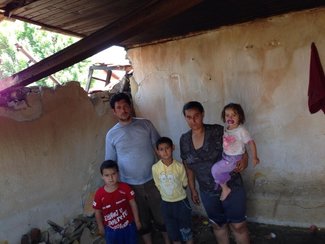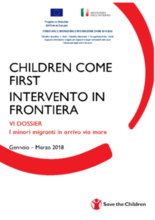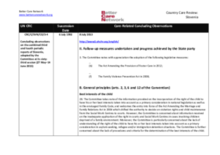

Displaying 271 - 280 of 544
As part of the "Children Come First: Intervention at the border" project, Save the Children Italy elaborates and disseminates, on a quarterly basis, a dossier containing quantitative and qualitative information (profiles) relating to migrant minors entering Italy. This dossier contains information relating to the first quarter of 2018.
Appoġġ, a social service agnecy of the Foundation for Social Welfare Services in Malta, has launched a campaign encouraging people to take on the role of foster carer, in order to provide foster homes for the 250 children in out-of-home care who are not currently fostered.
This study analyzed the impact of a novel child day-care program on children's quality of life, adjustment and development, and explored the moderating role of different child and family dimensions on the program's impact.
This Country Care Review includes the care-related concluding observations adopted by the Committee on the Rights of the Child and the Committee on the Rights of Persons with Disabilities, as well as other care-related concluding observations, ratification dates, and links to the Universal Periodic Review and Hague Intercountry Adoption Country Profile.
The goal of the article is to analyze the characteristics and experiences of youths when they leave care and their first years in transition from foster care to adulthood.
UNICEF is seeking a National Consultant to support the periodic reporting of Albania to the Committee on the Rights of Child.
The quantitative study presented here contributes knowledge regarding the attitude of professionals towards positive parenting and child participation in professional support of families that are under temporary protection, with the goal of reunification.
This quantitative study contributes knowledge regarding the attitude of professionals towards positive parenting and child participation.
This study aims to give voice to parents and gather their views about contact visits in foster care.
The present study explores sexual abuse and exploitation of unaccompanied migrant children in Greece, and the risk factors associated with their occurrence.


